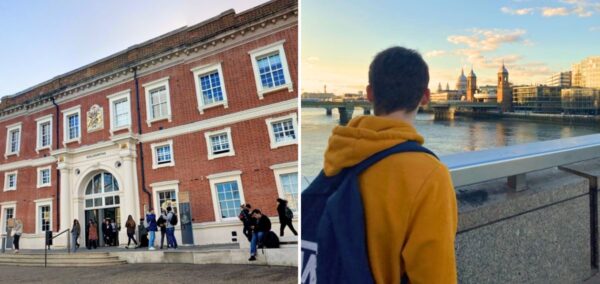
Manchester Uni students told if they see silverfish in halls, ‘politely tell it to leave’
The member of staff also admitted the silverfish ‘problem’ has been ongoing for years
University of Manchester students have been told silverfish are a “normal feature” of their halls and if they see the insect, “politely tell it to leave”.
Students at £115-a-week Whitworth Park had raised the issue with a member of the Residential Life (ResLife) team but were told by the member of staff they thought “nothing could be done about it”.
Writing to students in October, the member of staff added: “This has been an ongoing problem for years now and is sadly a normal feature of Whitworth Park.”

However tonight, the University of Manchester has claimed it always responds to issues when it becomes aware of them, saying they are “dealt with immediately”.
A spokesperson told The Manchester Tab: “We would never let an unsuitable property to any student. Health and safety inspections took place over Christmas with no significant issues reported.
“We work with with the maintenance teams and our pest contractor to try and identify and repair any ingress points.”
Students currently living inside the hall of residence paint a different picture. Eden has lived in Whitworth for the past two years. They told The Manchester Tab: “Everybody I know in Whitworth halls has complained about silverfish.
“That’s all 16 people I’ve lived with, eight last year and eight this year plus four to six people in other flats.”
Silverfish tend to enjoy damp, dark spaces however Eden explained they are so common in Whitworth, they’ve had them in their bedroom, kitchen, toilet and showers both years.
Tomás, a second year student who lived in Whitworth last year equally said the pests were widespread in the accommodation.
Whilst saying his flat only had a problem with silverfish once, he added: “I know most of my friends in other flats had a lot worse problems.
He said he knew at “least a dozen flats” with a silverfish infestation and that “pretty much everyone complained about it”.
An estimated 350 Manchester University students are currently withholding their rent payment from the university in protest over their living conditions and the amount they are having to pay for it.
Manchester Rent Strike says collectively students are withholding £500,000 from the university.
Whilst students continue to live among the pests, the university has accused those same students of inflating just how many people are really taking part.
The university claimed Manchester Rent Strike was “guessing” how many students had taken part and the group’s figures were “incorrect”.
In response, Manchester Rent Strike told the university to stop “attacking its own students” and instead get on with “focusing on fighting the cost-of-living crisis” and “supporting its students by lowering the rent in halls”.
The Manchester Tab earlier revealed halls have gone up by almost 40 per cent above inflation since 2004 – the year most first year students were born.
At the top of the pile was Whitworth Park which has seen an increase in rent 55 per cent above inflation. Prices currently start at £115 per week. However, in 2004, it was just £52 per week. Using the Bank of England’s inflation calculator, if the 2004 price rose in line with inflation, the halls would cost £86 per week.

A spokesperson for the University of Manchester said: “When we become aware of issues we always respond. We work with the maintenance teams and our pest contractor to try and identify and repair any ingress points. All residences are cleaned twice a week by cleaning services. This is a partnership to supplement the cleaning that residents would do themselves.
“Regular condition checks in our residences are in place. We would not let an unsuitable property to any student. Any reported issues are dealt with immediately. Health and safety inspections took place over Christmas with no significant issues reported.
“We maintain a pest control contract which sees professionals attend eight visits per year to University residences to undertake inspections and carry our preventative measures. In addition we have a reactive service that responds to issues raised through the buildings maintenance reporting system. The contractor will continue to monitor and carry out follow-up treatments and inspections until there is no detected activity.”




















